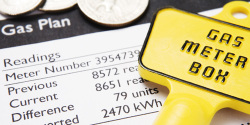

Ed Miliband MP announced at the Labour Party conference that an incoming Labour Government would legislate to impose an energy price freeze until January 2017.
During that period, reforms would be introduced to increase competition and transparency in the market, while the price freeze would save a typical household £120 and an average business £1,800 over the 20-month period, according to the party.
In an open letter to the energy companies, Miliband called on them to be “part of the solution, not part of the problem” in making the energy market work in the future.
He wrote of restoring public trust in the energy providers and building a market that delivers for consumers and underpins the investment in future clean energy capacity. He proposed legislating to build competition and transparency into the market, with a trusted regulator standing behind the system, and freezing prices until the new system is in place.
But energy firms, business groups and coalition ministers have warned the plan could put future supplies at risk.
Andrew Eastwell, chief executive officer of BSRIA, explained that this choice of policy could in fact prevent much needed investment and regeneration of the UK’s energy capacity and result in a greater likelihood of brown or blackouts.
“Which investor is going to put up the millions needed for both renewable and conventional plant when the return on that investment has effectively been politicised and put into the hands of a new, unknown body?” he said.
“Ofgem has already sounded serious warning bells about the UK’s generating margin falling from about 14% to sub 4% levels around 2016,” Eastwell explained. “This is hardly an outcome that will increase the efficiency of industry and the generation of wealth and jobs.”
Energy & Climate Change Secretary Edward Davey said: “Everyone wants to help with the cost of rising bills but we need to be sensible. Government price-fixing jeopardises investment in new power stations, making power cuts a real possibility. It also puts at risk Britain’s transition to a clean, green, low carbon future.
“The best way to keep everyone’s bills down is to help people to save energy, ensure fair tariffs and encourage competition. That is exactly what the government is doing.”
The Department for Energy & Climate Change argued that energy companies would likely increase their assessment of political risk in the UK, which could put prices up both in the near term and the longer term.
Prices may rise before the freeze comes in as companies need to ensure they can maintain viability for its possible duration and be robust to potential rises in their costs over the period.
Suppliers could also need to raise their prices significantly at the end of the price freeze to compensate for lost revenue during the freeze period.
Competition in the market could be reduced, as small suppliers will find it more difficult to manage unpredictable hikes in wholesale prices or increases to network and distribution charges if they are unable to increase their prices.
The proposals have sparked fierce debate among MPs and industry experts, with shares in British Gas owner Centrica and rival company SSE falling by 5% yesterday as the market continues to react to Miliband’s pledge.
If you'd like to keep up-to-date with the latest developments in the heating and plumbing industry, why not subscribe to our weekly newsletters? Just click the button below and you can ensure all the latest industry news and new product information lands in your inbox every week.